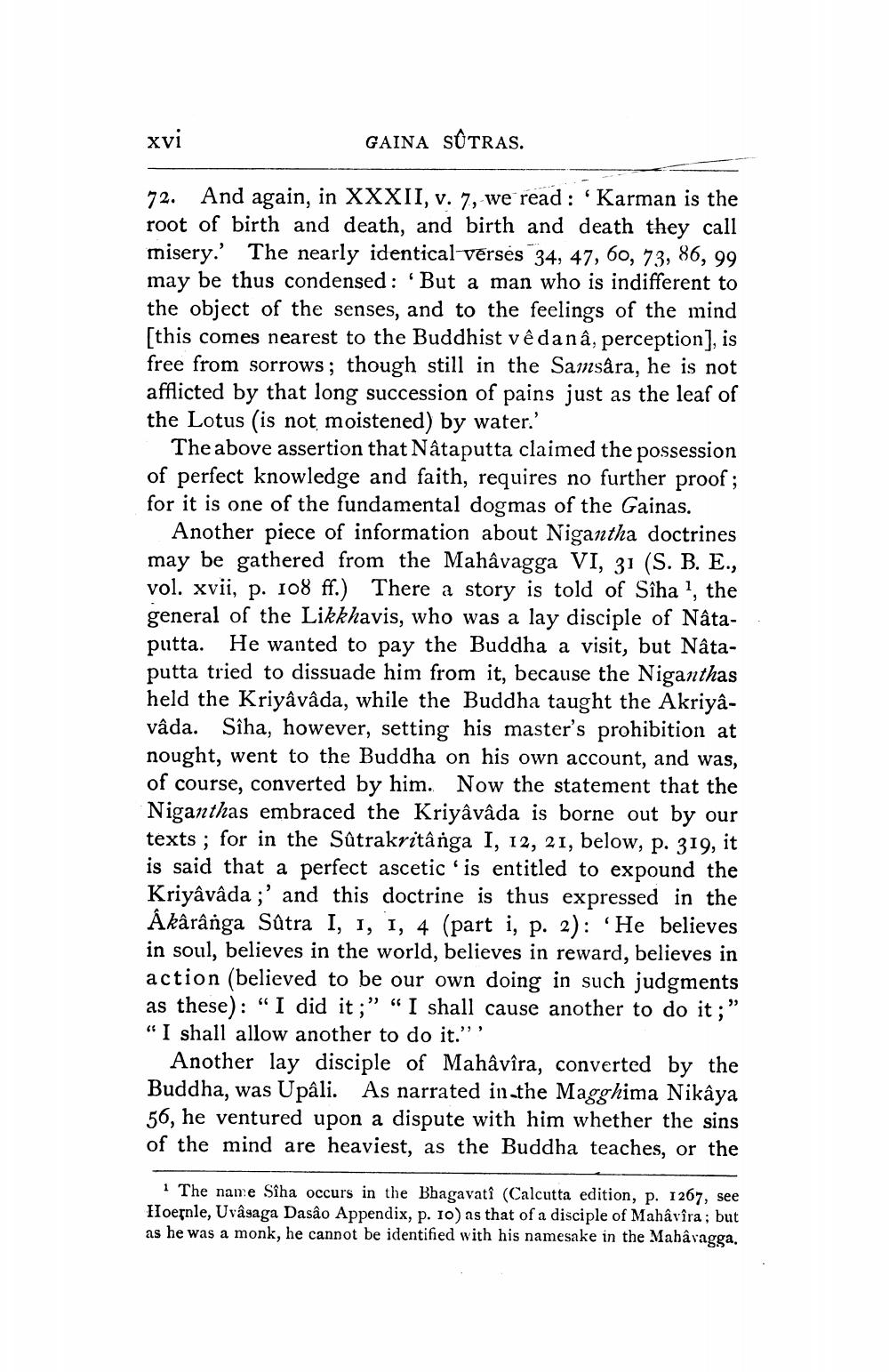________________
xvi
GAINA SÛTRAS.
72. And again, in XXXII, v. 7, we read : 'Karman is the root of birth and death, and birth and death they call misery. The nearly identical vērses 34, 47, 60, 73, 86, 99 may be thus condensed: 'But a man who is indifferent to the object of the senses, and to the feelings of the mind [this comes nearest to the Buddhist vêdanâ, perception), is free from sorrows; though still in the Samsara, he is not afflicted by that long succession of pains just as the leaf of the Lotus (is not moistened) by water.'
The above assertion that Nâtaputta claimed the possession of perfect knowledge and faith, requires no further proof; for it is one of the fundamental dogmas of the Gainas.
Another piece of information about Nigantha doctrines may be gathered from the Mahâvagga VI, 31 (S. B. E., vol. xvii, p. 108 ff.) There a story is told of Sîhal, the general of the Likkhavis, who was a lay disciple of Nâtaputta. He wanted to pay the Buddha a visit, but Nâtaputta tried to dissuade him from it, because the Niganthas held the Kriyâvâda, while the Buddha taught the Akriyâvâda. Sîha, however, setting his master's prohibition at nought, went to the Buddha on his own account, and was, of course, converted by him. Now the statement that the Niganthas embraced the Kriyâvâda is borne out by our texts ; for in the Sûtrakritânga I, 12, 21, below, p. 319, it is said that a perfect ascetic is entitled to expound the Kriyâvâda ;' and this doctrine is thus expressed in the Akârânga Sûtra I, I, I, 4 (part i, p. 2): "He believes in soul, believes in the world, believes in reward, believes in action (believed to be our own doing in such judgments as these): “I did it ;” “I shall cause another to do it;" “I shall allow another to do it."
Another lay disciple of Mahâvîra, converted by the Buddha, was Upâli. As narrated in the Magghima Nikâya 56, he ventured upon a dispute with him whether the sins of the mind are heaviest, as the Buddha teaches, or the
1 The name Siha occurs in the Bhagavatî (Calcutta edition, p. 1267, see Hoernle, Uvâsaga Dasão Appendix, p. 10) as that of a disciple of Mahâvîra; but as he was a monk, he cannot be identified with his namesake in the Mabâvagga.




